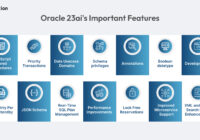The cloud has transformed the business landscape, offering exceptional agility, scalability, and cost-efficiency. A testament to this is the rapid adoption rate; Gartner predicts that by 2025, over 95% of new digital workloads will reside on cloud-native platforms, a significant leap from 30% in 2021. This shift is driven by the attraction of operational expenditure over capital expenditure, enabling businesses to align infrastructure consumption with fluctuating demands.
However, while the cloud presents immense opportunities, it also introduces complex challenges. As cloud adoption accelerates, so does the potential for spiraling costs. This article delves into the six primary obstacles hindering cloud cost optimization, offering insights to help businesses harness the cloud’s potential without compromising their bottom line.
#1 Complex Pricing Models:
Cloud providers offer a myriad of pricing models, including pay-as-you-go, reserved instances, spot instances, and more. Each model has its own benefits and cost implications.
For instance, pay-as-you-go allows flexibility but can be expensive for long-term, consistent workloads. Reserved instances provide cost savings but require upfront commitment and accurate forecasting of future needs. Spot instances offer substantial discounts but come with the risk of sudden termination. Navigating these options and understanding the best fit for various workloads requires significant expertise and can be a complex task for businesses, leading to potential overspending or suboptimal resource utilization.
#2 Resource Sprawl:
In the cloud environment, it’s easy to provision new resources, but without proper management, this can lead to resource sprawl – the accumulation of unnecessary, idle, or underutilized resources. This sprawl can significantly inflate cloud costs. Often, resources are provisioned for short-term projects or testing and then forgotten.
Regularly identifying and decommissioning these unused resources requires diligent monitoring and effective governance policies. Businesses need robust tools and processes to continuously track resource usage and ensure that they are only paying for what they need and use.
Also Read – Top Reasons Why You Should Choose Oracle Cloud
#3 Data Transfer Costs:
This, often referred to as data egress charges, can be a hidden and significant expense in cloud environments. These costs accrue when data moves between different cloud regions, between different cloud providers, or from cloud to on-premises systems.
For businesses with global operations or hybrid cloud architectures, managing these costs while maintaining efficient data flow and performance is challenging.
#4 Right-Sizing Resources:
Right-sizing involves selecting the optimal size and type of cloud resources
E.g., compute instances, storage volumes
For specific workloads to avoid over-provisioning and under-provisioning.
- Over-provisioning leads to wasted spending on resources that are not fully utilized.
- Under-provisioning can degrade application performance and reliability.
Achieving the right balance is challenging, as it requires in-depth understanding of application performance requirements, usage patterns, and resource capabilities. Businesses need sophisticated tools and methodologies to analyze and adjust resource allocations dynamically.
#5 Lack of Visibility and Reporting:
A major challenge in cloud cost optimization is the lack of comprehensive visibility into cloud usage and spending. Without detailed and granular insights, businesses cannot effectively identify cost-saving opportunities or understand spending patterns. Effective reporting and analytics tools are essential to provide this visibility, enabling organizations to track expenses, allocate costs to different departments or projects, and monitor the impact of optimization efforts. However, setting up and maintaining these tools, and ensuring they provide actionable insights, requires significant effort and expertise.
#6 Dynamic and Changing Needs:
Business needs and application requirements are not static; they evolve over time due to factors such as growth, new projects, market changes, and technological advancements. Consequently, cloud cost optimization is an ongoing process rather than a one-time effort. Businesses must continuously monitor and adjust their cloud resource usage to align with these changing needs. This involves regularly reviewing workloads, adjusting resource allocations, and implementing new optimization strategies. Dedicated resources and specialized expertise are often required to manage this dynamic environment effectively and to ensure sustained cost-efficiency.
Wrapping Up
If you are facing issues in any of the above cloud problems that we have mentioned, contact Conneqtion Group and we can assist you with your cloud problems. We can discuss Cloud adoption in detail and guide you through the benefits of Cloud automation for your business. Please feel free to contact us at [email protected]. If you have any comments regarding our work or would like us to include anything to this article, please let us know in the comments below.




